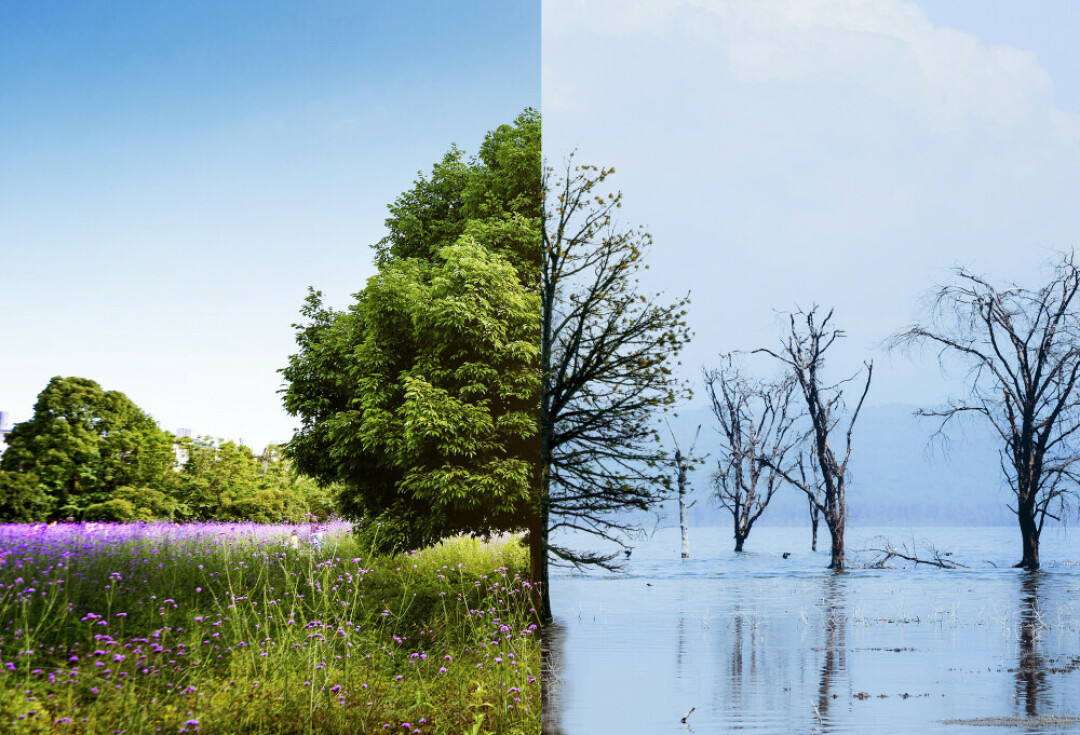News & Articles
Browse all content by date.

Image by Freepik
Many of us set our alarms at night so we can get started in the morning and not oversleep. And yet, when the alarm goes off, we will often push the snooze button because we're just not ready to wake up, bounce out of bed and face the day.
Throughout 2023, there were a number of climate alarms. From South America to Canada, Western Europe, the Antarctic and various regions in the U.S., climate events around the world keep setting new records for high temperatures and extreme weather patterns. And yet, on so many occasions, too many of us kept pushing the snooze button because we weren't ready to wake up and face this climate reality. Here in Duluth, the temperatures are in the mid to high 30s and there's no snow on the ground. Dr. Mark Seeley, a meteorologist and climatologist with MPR, reported that 120 temperature records have been broken in Minnesota in December. Also, there was news that temperatures in the Upper Midwest region of the U.S. were about 30 degrees Fahrenheit above normal.
On Dec. 5, CBS News reported that the European Union's Copernicus Climate Change Service announced that 2023 was the hottest year ever recorded and that November was 1.75 degrees Celsius warmer than the pre-industrial average.
Then on Dec. 21, CNN reported that an analysis of temperature data by Climate Central showed the winter period from December to February as being the fastest warming season for about 75% of the U.S. Also, winter temperatures increased by 3.8 degrees Fahrenheit on average since 1970, and the Northeast and Midwest were the fastest warming regions of the U.S.
With all the climate alarms going off around the world and in our region of the U.S. you would think everyone would be waking up and bouncing out of their collective beds to say or do something. But it appears that most of us keep pushing the snooze button.
In our city, we keep pushing the snooze button because many believe that Duluth doesn't have a climate problem. That Duluth can deal with climate change tomorrow. That Duluth has more important matters to deal with than address climate change. That Duluth doesn't have the money or resources to address climate change. That Duluth doesn't have the capacity to address climate change and should leave it to the federal government.
On so many occasions, the climate alarms have gone off and there's been no public statements or actions by many of our local leaders - including our congressman, the current or newly elected mayors, many of the city council members, Chamber of Commerce, unions, health care providers and the list goes on. Whether it's the air quality alerts from the Canadian wildfires, a warmer Lake Superior, major losses of the bird population, higher atmospheric CO2 levels or concerns about the rising urban island heat index, we don't hear much if anything from these individuals or groups. Most of the time they keep pushing the snooze button.
With a very tight and increasingly expensive housing market, and not enough low-cost units for the poor and homeless, we're hearing about wealthy individuals and corporations who are coming to Duluth because of climate change and are buying properties way above their current market values. Climate alarm.
Lake Superior, one of the fastest warming bodies of water in the U.S., has large pockets of microplastics and an increasing number of algae blooms. Climate alarm.
Larger and longer lasting wildfires in Canada are contributing to more air quality alerts in Duluth. Climate alarm. Center cities around the world are becoming more proactive in addressing higher urban heat indexes and rising temperatures by expanding their walkways, bike paths and public transportation services as well as planting more trees. Duluth is not moving so fast. Climate alarm.
More climate events are taking place in our city and there’s still no climate task force, commission or a public forum on climate change. Climate alarm.
If we decide to stop pushing the snooze button and just wake up and get out of our collective bed of resistance or refusal to address climate change, then maybe we have a chance to build a more resilient, sustainable and environmentally just city before it's too late.
We can start a counseling initiative and organize support groups for young people experiencing climate anxiety and depression. We can assist social service agencies to identify immediate and short-term needs of our most vulnerable populations. We can establish a climate commission to undertake and oversee citywide programs to address climate change.
In 2024, we need to stop pushing the snooze button. We don't have any more time to lay around and close our eyes to what's happening. We have run out of excuses to deny climate change or delay responding to these climate events.There will be more climate alarms in the new year and we need to be ready to respond and act.
| Tweet |


